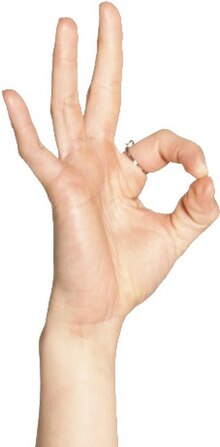
Lord above. More $$$ spent on some arcane study that really has no viability in the real world. Who uses their hands when they speak? Not a lot with English. Loads with Spanish and Italian.
Was that included in the study?
Gesture researchers have spent the past 40 years uncovering how movements (like a cupped hand rotating in space or a finger tracing a path through the air) are intimately tied to speech. Regardless of their spoken language or culture, humans gesture when they talk. They gesture even if they have never seen gestures before—people who have been blind since birth do it—and they gesture even if they’re talking to someone on the phone and know no one can see them. When speech is disrupted—by stuttering, for example—so is gesture.
Yes. It does speak of the differences in the language being spoken.
More @ Why Do We Gesture When We Talk? - Mental Floss - Pocket

 I do it because I’m Italian!
I do it because I’m Italian!